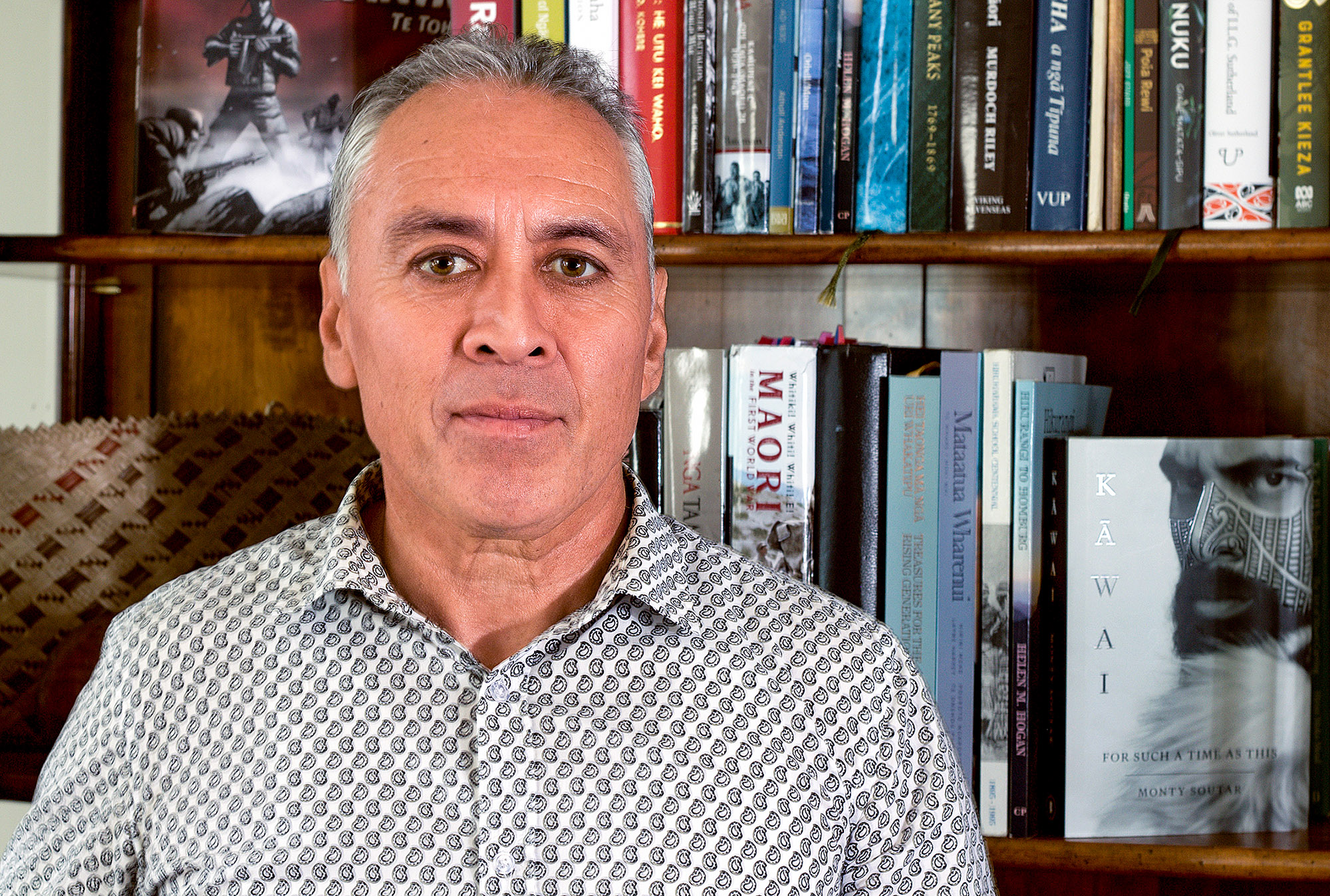New era captured in second novel

OUT NOW: Monty Soutar’s second book in his Kawai series, Kāwai: Tree of Nourishment, is on the bookshelves. Photos Melka Oakley
Kathy Forsyth
FANS of Monty Soutar’s debut novel can now find his second instalment, Kāwai: Tree of Nourishment, available in bookstores, including Paper Plus Whakatāne and Opotiki. Published by Bateman Books, this historical fiction continues the saga of a Māori family, exploring themes of lineage and cultural impact.
Dr Soutar will host book signings in Whakatāne and Ōpōtiki on November 12, where he’ll discuss his latest work.
Speaking to the Beacon this week, he said he was thrilled to have the second tale in this series done and dusted.
“I’m relieved, it is hard work, and it took longer than I expected, but I am getting a great response, similar to the first book, so I am really pleased,” he said.
Dr Soutar, ONZM (Ngāti Porou, Ngāti Awa, Ngāi Tai ki Tāmaki, Ngāti Kahungunu) is a respected historian and author of non-fiction books.
His first novel, Kāwai: For Such a Time as This, was a bestseller for 26 weeks and has been reprinted multiple times. It garnered numerous accolades, including a nomination for the Jann Medlicott Acorn Prize for Fiction at the 2023 Ockham New Zealand Book Awards.
Set on the East Coast of Aotearoa in 1818, Kāwai: Tree of Nourishment follows Hine-aute, granddaughter of the legendary warrior Kai-tanga, as she navigates the tumultuous changes brought by early European contact, including conflict and new beliefs.

“The first book looked at Māori society untouched by any other culture and now the second novel looks at the arrival of the first Europeans into the region and the impact they had in that initial contact.”
As a historian, Dr Soutar has drawn on a lifetime of experience from the old traditions he has been privy to: “From manuscripts and family whakapapa, books that people still hold from the Land Courts and those books that were written in the nineteenth century, from academic training as a historian and from twenty years sitting on the Waitangi Tribunal hearings, hearing the histories of different tribes in this country.”
Dr Soutar’s venture into fiction came about with the purpose of making Māori history accessible to everyone, including younger people.
“My aim is to get the series I have written on to the big screen because young people, I find, if you want to reach them, it is through the screen, more than through a book.”
The first book, though, is already in schools, being used as a resource by teachers.
“I am trying to reach younger people ... I think it will enable people, if they know about our past, to move forward. I think our country’s got some problems at the moment and a lot of it is in part because we don’t know where we came from.
“Even though this is fiction, I think people can sense the authenticity in these novels. It may be fiction, but it is based on true events, and you just can’t make up some of this stuff that has happened. There are some misconceptions about our past, from Māori as well, and I am trying to give what I think is a more accurate account of the past. All my work that I have done in my life is about education.”
Dr Soutar is proud of his Whakatāne connection and is looking forward to his visit: “I spent some time with my grandmother at Paroa, and my dad is from Paroa.”
The third book in the series is in the pipeline.
Book signing and talk
- Monty Soutar will be returning to Whakatāne and Ōpōtiki to talk about his second book in the Kawai series, Kāwai: Tree of Nourishment.
Dr Soutar will be at PaperPlus in Whakatāne at midday on Tuesday, November 12, and at PaperPlus Ōpōtiki at 6pm.